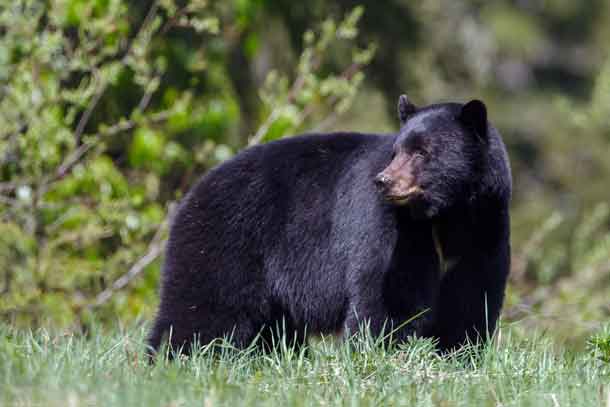THUNDER BAY – LIVING – One of the impacts of our milder than usual winter, along over time of climate change is the impact on wildlife. Bears usually hibernate through into spring.
However with reports of early bear sightings across parts of Ontario due to mild winter weather, the Ontario government and OPP are urging Northwestern Ontario residents to be extra vigilant about bear safety.
Black bears, the only bear species found in the region, are coming out of hibernation hungry and may venture into residential areas seeking food.
Key Precautions to Reduce Encounters:
- Secure Garbage: Store garbage in airtight containers, ideally indoors or in bear-resistant bins. Only put garbage out on the morning of collection.
- No Bird Feeders: Remove all bird feeders until late fall. Offer birds natural food sources like berry bushes, flowers, and fresh water sources.
- Clean Grills: Thoroughly clean grills (including grease traps) after each use and store them in a garage or shed.
- Leash Your Pets: Always keep dogs leashed. Loose dogs can provoke bears or unknowingly lead them back to your property.
- Don’t Leave Pet Food Out: Feed pets indoors and secure any remaining food.
What to Do If You See a Bear:
- Report Non-Emergencies: Call Ontario’s Bear Wise reporting line at 1-866-514-2327 (now open early due to the weather).
- Immediate Threat: If a bear acts aggressively, stay calm and call 911 or local police.
- From a Distance: If the bear isn’t threatening, stay back, make noise, and give it a clear escape route.
Additional Tips for Hikers and Campers:
- Hike in Groups: Travel with others and make your presence known.
- Bear Bells: Though their effectiveness is debated, some hikers prefer using noisemakers.
- Cook Away From Camp: Prepare and eat food well away from your sleeping area.
- Food Storage: Use bear-resistant canisters or hang food securely at least 4 meters above the ground and away from the trunk of trees.
Remember: Bears are wild animals. By removing attractants, we help them stay in their natural habitat and out of our communities.







